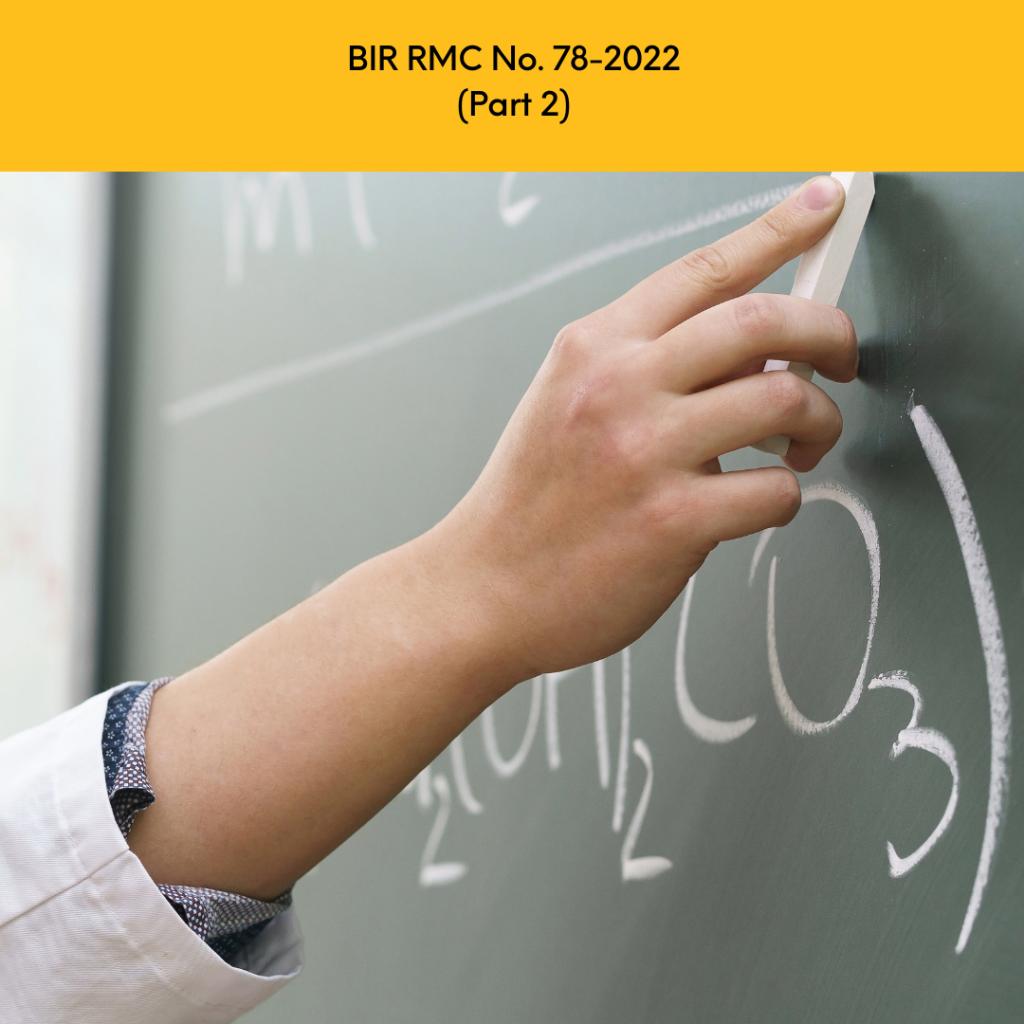
Published 22 July 2022, The Daily Tribune
Domestic non-stock, non-profit (NSNP) educational institutions are not required to file monthly and quarterly VAT or percentage tax returns. Certain gifts or donations in favor of an NSNP educational institution may be exempt from donor’s tax, subject to the condition that not more than 30 percent of said gifts shall be used by the donee institution for administration purposes. The NSNP educational institution shall stamp the words “Tax Exempt” prominently for all donations received.
Further, contributions or gifts actually paid or made within the taxable year to domestic corporations organized and operated exclusively for educational purposes may be allowed as a deduction from the gross income of the donor, not exceeding 10 percent for individual donors and 5 percent for corporate donors, of the donor’s taxable income. For this to apply, no part of the net income or asset of the donee educational institution must inure to the benefit of any individual or private stockholder.
NSNP educational institutions are also not subject to any creditable or final withholding tax on their revenues and assets used actually, directly, and exclusively for educational purposes as provided under the Constitution. Existing NSNP educational institutions shall continue to present to withholding agents their duly issued Certificate of Income Tax exemption or exemption rulings, and Securities and Exchange Commission registration.
However, newly-organized NSNP educational institutions must secure their Certificate of Tax Exemption within three months from the issuance of their Certificate of Registration with the SEC.
Government educational institution (GEI)
A GEI is a public university or college that is fully owned and subsidized by the government. If the GEI has a charter and the charter expressly provides that it is exempt from taxes, then such GEI is exempt from applicable taxes as may be provided in the aforesaid charter. Even without such express provision on its charter, it is nonetheless exempt from income tax on the income received as such pursuant to Section 30(I) of the Tax Code.
Others
Other corporations, including those not organized as domestic corporations but are classified as resident foreign corporations, are taxable under regular corporate income tax for such resident foreign corporations under Section 28(A) of the Tax Code.
The income of an individual, trust, or estate that owns a proprietary educational institution as a sole proprietor, is taxable under Sections 24 and 25 of the Tax Code, and the applicable tax rates shall depend on the citizenship and residence of such individual, trust, or estate.
Compliance requirements
Educational institutions must obtain an Authority to Print Receipts/Invoices and cause the printing of their principal and supplementary receipts/invoices containing all the information required in the existing revenue issuances prior to the commencement of business operations. They are required to register their books of accounts and must update their registration with the BIR.
The issuance reminded us that in the regular conduct of business, all educational institutions must issue duly registered receipts or sales/commercial invoices showing the date of transaction, quantity, unit cost and description for each sale of merchandise or for services rendered valued at least one hundred pesos. This means that for payment of tuition and other fees, or sale of books or other merchandise by the school, such duly registered receipts must be issued.
Indeed, our educational institutions are where the future of our country are taught, honed and developed. Nevertheless, schools are also taxable entities that have tax obligations. With these clarifications, educational institutions will be guided on their tax treatment and compliance with other tax requirements.
For more of Dean Nilo Divina’s legal tidbits, please visit www.divinalaw.com. For comments and questions, please send an email to cabdo@divinalaw.com.

